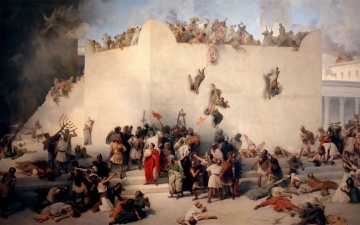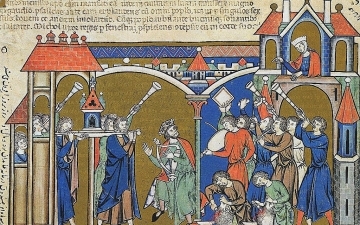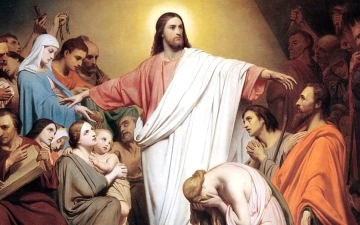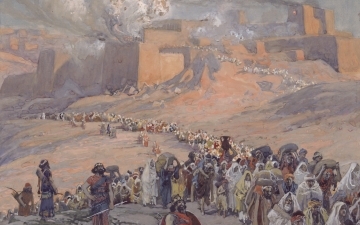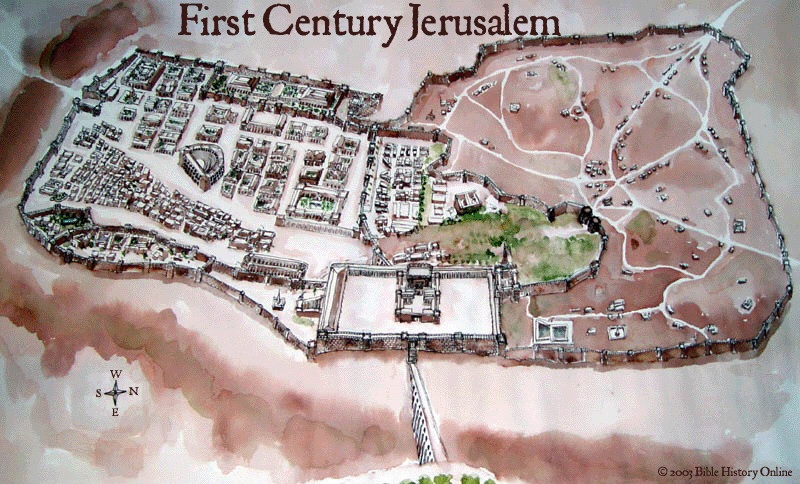
Jerusalem, the timeless city at the heart of Hebrew history, stands as a symbol of faith, identity, and divine presence. Revered by Jews, Christians, and Muslims alike, Jerusalem's ancient roots are deeply intertwined with biblical narratives that unfold through the pages of the Bible. Let us embark on a journey of discovery, exploring the rich heritage of this sacred city as revealed in the scriptures.
Jerusalem's Founding and Significance:
The origins of Jerusalem trace back to the time of the Hebrew patriarchs. In Genesis 14:18, we encounter Melchizedek, the King of Salem, who blessed Abraham, setting the stage for Jerusalem's spiritual significance. Later, in 2 Samuel 5:6-9, David conquered the city, making it the capital of the united kingdom of Israel, further solidifying its place as the center of Hebrew rule and worship.
The Temple Mount and King Solomon:
The construction of the Temple Mount, an iconic landmark in ancient Jerusalem, is intricately connected to the reign of King Solomon. In 1 Kings 6:1, we learn that Solomon began building the temple in the fourth year of his reign, a project that took seven years to complete. The temple became the center of religious life for the Hebrews, where they offered sacrifices and sought the presence of God.
The City of David and the Psalms:
King David's connection to Jerusalem runs deep. In 2 Samuel 5:7, it is said, "David took the stronghold of Zion, that is, the city of David." The term "City of David" refers to the area where David established his residence and capital. In the Psalms, David's poetic and intimate expressions of his relationship with God reveal his profound connection to Jerusalem. Psalms such as Psalm 122 reflect the deep love and longing for the city and its significance in Hebrew worship.
The Crucifixion and Resurrection of Jesus:
Jerusalem also holds immense significance for Christians, as it is the city where Jesus was crucified and resurrected. The New Testament accounts in Matthew, Mark, Luke, and John describe the events leading to the crucifixion of Jesus on Golgotha (the Hill of Calvary) and His resurrection from the tomb in the vicinity of Jerusalem. These pivotal events form the foundation of the Christian faith and have contributed to the city's enduring spiritual allure.
Jerusalem in Islamic Tradition:
Jerusalem is revered in Islamic tradition as the site of the Al-Aqsa Mosque and the Dome of the Rock. In Islamic belief, the Prophet Muhammad is said to have ascended to heaven from the rock located within the Dome of the Rock. This sacred site holds deep spiritual significance for Muslims, contributing to the city's multi-faith appeal.
Ancient Jerusalem's rich heritage is a testament to its enduring significance as a spiritual and cultural hub for people of diverse faiths. From its founding through the reigns of David and Solomon, to the crucifixion and resurrection of Jesus, Jerusalem's biblical connections have left an indelible mark on the hearts of believers across centuries. Today, the city continues to stand as a beacon of hope and faith, a place where the echoes of ancient history resonate with the aspirations of people from all walks of life.



